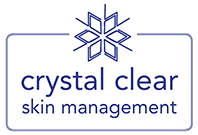Does Skincare Make Your Skin Worse?
Beauty Betrayal: Can Your Skincare Routine Betray Your Skin's Trust?
In the intricate dance between skincare and our skin's needs, one might wonder: is there a potential betrayal lurking in our daily routines? Picture this scenario: as dead skin cells accumulate over time, our skincare rituals become the frontline defense against dullness and congestion. However, what if, in an unexpected twist, our trusted skincare routine turned traitor? Skin purging, often mistaken for an unwarranted acne breakout, can make us question the allegiance of our cherished products. The intricate process of skin cell turnover, intended to rejuvenate and refresh the complexion, may, for some, trigger sensitivity, especially for those with acne-prone skin. Acne treatments, while aimed at combating blemishes, might inadvertently lead to a skin purge, releasing more dead skin cells that, in turn, could clog pores. In this delicate balance, the question remains: can our beauty rituals truly be trusted, or do they harbor the potential for a beauty betrayal? In This blog post we will explore the world of skincare and how it can affect your skin.

Skin Purging VS. Breakouts: Understanding Skin Purging
Skin purging is a term frequently encountered in the realm of skincare, often causing confusion among enthusiasts. Unlike standard breakouts that can evoke concern, skin purging is a temporary and positive process initiated by the introduction of new skincare products or treatments. This phenomenon signifies an accelerated exfoliation rate, leading to the surfacing of dormant acne or clogged pores. The crucial distinction lies in recognising that these eruptions are not indicative of a harmful product but rather a natural part of the skin's renewal process. While breakouts may suggest an adverse reaction, skin purging reflects a beneficial adjustment period as the skin acclimates to the positive changes in your skincare routine, ultimately contributing to a healthier and clearer complexion in the long run.
Skin Purging Means A New Skincare Product Is Working — Here's How To Tell If Its Purging Or A Breakout
Skin purging serves as a positive indicator that a new skincare product is actively improving your skin, but distinguishing it from a breakout requires understanding its nuances. Especially common in the first few weeks—typically up to six weeks—of incorporating new products with active ingredients, skin purging is a transient phase that accelerates the skin's natural exfoliation process. It's crucial to approach new products, including makeup, with patience and informed decisions, recognising that an initial uptick in breakouts may be part of the skin's adjustment to a fresh skincare.
Is Skin Purging A Good Thing?
The concept of skin purging often raises questions about its overall benefit. In essence, skin purging can be viewed as a positive process, particularly when introducing new skincare products or treatments. This phase, typically lasting up to six weeks, signifies the skin's response to active ingredients, working to accelerate the natural exfoliation process. During this time, pores may appear more prominent, and an initial increase in breakouts, blemishes, or pimples may occur. However, it's essential to recognise that these reactions are temporary and part of the skin's mechanism to rid itself of impurities. While redness might accompany this phase, it's crucial to understand that the ultimate goal is to pave the way for healthier, clearer skin in the long run. Thus, while the immediate effects may raise concerns, the positive outcome of skin purging is often a testament to the efficacy of the skincare products in promoting renewal and overall skin improvement.
What Causes A Skin Purge?
A skin purge is typically triggered by the introduction of new skincare products or treatments containing active ingredients like retinoids, alpha hydroxy acids (AHAs), or beta hydroxy acids (BHAs). These ingredients accelerate the skin's natural exfoliation process, leading to the shedding of dead skin cells and the emergence of previously unseen blemishes or pimples. The purpose of a skin purge is to cleanse the skin of impurities, promoting a healthier complexion in the long run.

How Long Does The Acne And Retinoid Purge Last And What Can You Do In The Meantime?
The duration of the acne and retinoid purge varies from person to person, typically lasting around six weeks. During this phase, the skin undergoes an adjustment period as it adapts to the treatment. While pimples may surface, it's crucial to address any potential skin irritation and dryness. A gentle cleanser and a sensitive skin-friendly sunscreen become essential in your routine. Consider incorporating aloe vera to soothe redness and calm the skin condition. These measures help strike a balance, ensuring that the purging process effectively rids the skin of impurities while minimising discomfort and maintaining overall skin health.
Using Too Many Acne-Fighting Products In Your Routine
Using too many acne-fighting products may backfire, causing increased breakouts and persistent blackheads. To address this, consulting a dermatologist is crucial for tailoring a balanced skincare routine with suitable active ingredients. Gradual introduction of acne treatments is key to preventing irritation and promoting effective cell turnover, ensuring a more sustainable approach to managing acne.
Combining Too Many Actives In Your Skincare Routine
Combining too many active ingredients in your skincare routine can lead to issues such as acne breakouts, dry skin, and excessive dryness, particularly when introducing acne treatments. It's crucial to be mindful of the potential for irritation and to allow time for your skin to adjust to the new regimen. Skin purging refers to the temporary increase in skin concerns, like breakouts, when active ingredients prompt accelerated cell turnover. Striking a balance with the right combination of active ingredients ensures a more effective and harmonious approach to your skincare routine.
